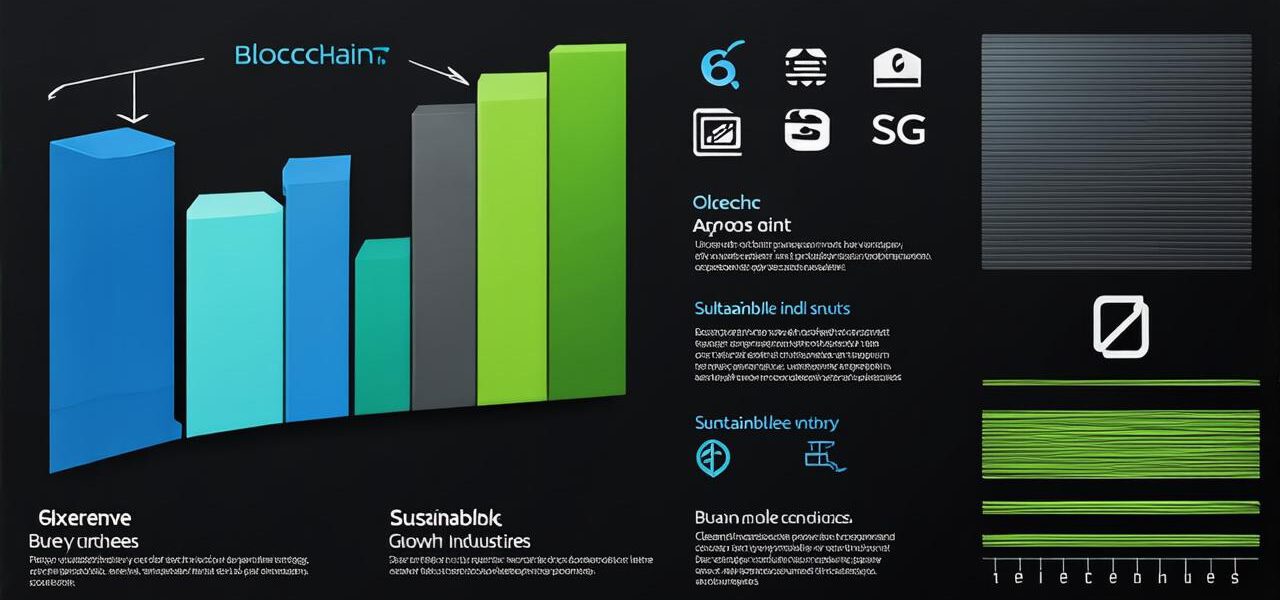
How does blockchain technology contribute to achieving sustainable development goals?
<!DOCTYPE html>
Poverty Reduction
Blockchain technology can help reduce poverty by enabling secure and transparent record-keeping systems that facilitate access to financial services, land registration, and other critical resources. For example, in Kenya, a blockchain-based platform called M-Changa allows users to send and receive money without the need for a bank account or mobile money service.
This has enabled millions of people to participate in the formal economy and improve their livelihoods.
Good Health and Well-being
Blockchain technology can contribute to good health and well-being by facilitating secure and transparent sharing of medical records, clinical trial data, and other critical health information.
MediLedger Project
The MediLedger project uses blockchain technology to track prescription drugs from manufacturer to patient, reducing the risk of counterfeiting, diversion, and adverse events. This has the potential to improve patient safety, reduce healthcare costs, and advance medical research.
HealthCare Blockchain Platform
The HealthCare Blockchain platform uses blockchain technology to facilitate secure sharing of electronic health records, enabling healthcare providers to access critical patient information and provide more effective care. This has the potential to reduce healthcare costs, improve patient outcomes, and advance medical research.
Quality Education
Blockchain technology can help promote quality education by enabling secure and transparent sharing of educational credentials, certificates, and degrees.
Learning Machine Platform
The Learning Machine platform uses blockchain technology to issue microcredentials that recognize specific skills and competencies, making it easier for learners to demonstrate their value to employers and educational institutions. This has the potential to increase access to education, promote lifelong learning, and enhance workforce readiness.
OpenCourseWare Platform
The OpenCourseWare platform uses blockchain technology to facilitate secure sharing of course materials and assessments, enabling students to access high-quality educational resources from around the world. This has the potential to promote global education and enhance academic excellence.
Gender Equality
Blockchain technology can contribute to gender equality by enabling secure and transparent sharing of identity documents, land ownership records, and other critical resources that are often controlled by men or women in unequal societies.
Women’s Land Rights Database
The Women’s Land Rights Database uses blockchain technology to record land ownership and tenure information, empowering women to participate more fully in the agricultural economy and improve their livelihoods. This has the potential to reduce gender inequality, promote economic development, and advance social justice.
Safe Harbor Platform
The Safe Harbor platform uses blockchain technology to facilitate secure sharing of data on human rights violations, enabling organizations to track and address systemic issues that affect marginalized communities. This has the potential to promote social justice and advance gender equality.
Clean Water and Sanitation
Blockchain technology can contribute to clean water and sanitation by facilitating secure and transparent sharing of data on water usage, quality, and availability.
WaterChain Platform
The WaterChain platform uses blockchain technology to track water usage and quality, enabling communities to monitor and address issues related to water scarcity, contamination, and waste. This has the potential to promote sustainable water management and improve access to clean water for millions of people around the world.
WaterGov Platform
The WaterGov platform uses blockchain technology to facilitate secure sharing of data on water governance, enabling organizations to track and address issues related to water access, pollution, and management. This has the potential to promote sustainable water governance and advance water security.
Affordable and Clean Energy
Blockchain technology can contribute to affordable and clean energy by facilitating secure and transparent sharing of data on energy usage, quality, and availability.



